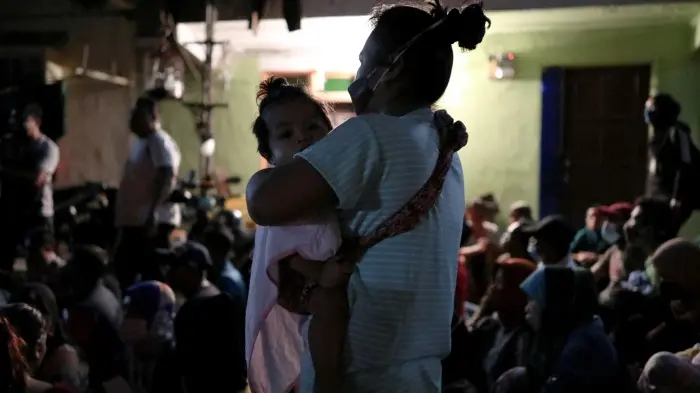Human Rights Watch (HRW) has sounded the alarm on the dire conditions faced by thousands of refugees and migrants detained in Malaysia, describing the detention centers as “violent” and “squalid.”
In a report titled “We Can’t See the Sun: Malaysia’s Arbitrary Detention of Migrants and Refugees,” released on Wednesday, HRW detailed the accounts of 23 former detainees who described their experiences as oppressive, highlighting the daily threat of punishment they endured. According to HRW, all interviewees reported witnessing or experiencing beatings, with punishments ranging from physical assault to deprivation of basic needs.
The report sheds light on the brutal treatment endured by detainees, including being hit, kicked, and beaten with rubber pipes or batons, as well as being subjected to stress positions, isolation, meal withholding, and forced physical exercises.
One Rohingya refugee, Hussein, recounted his ordeal of being targeted for his ethnicity while detained in multiple centers, such as Kemayan in Pahang, where he described being kicked, beaten, and slapped upon the realization that they were Rohingya.

Hussein’s testimony revealed the dehumanizing conditions within these centers, where detainees were subjected to frequent roll calls lasting for hours, with severe consequences for any perceived disobedience. Another former detainee, Ali, recalled instances of severe punishment, including being submerged in a water tank for an entire night after attempting to intervene on behalf of a fellow detainee.
Despite Malaysia’s non-signatory status to the UN Convention on Refugees, the country detains refugees alongside undocumented migrants, with no legal framework for processing or recognizing their status. The UNHCR’s inability to access immigration depots since 2019 has further exacerbated the situation, even as immigration raids continue to increase.
According to parliamentary records, as of September 2023, over 11,000 individuals, including 1,467 children, were held in immigration detention centers. HRW highlighted the lack of judicial oversight and avenues for appeal, emphasizing that prolonged, arbitrary detention violates international human rights standards.
ASEAN Parliamentarians for Human Rights (APHR) expressed deep concern over HRW’s findings, stressing the need for urgent action to address the systemic abuses faced by refugees and migrants.
HRW’s report also highlighted the unsanitary living conditions within the detention centers, contributing to the spread of infectious diseases such as scabies. Food and hygiene supplies were reported to be insufficient, with women unable to access sanitary pads, resorting to using torn clothing instead.
Overall, HRW’s report underscores the urgent need for Malaysia to reform its immigration detention policies and uphold its international human rights obligations to ensure the safety and dignity of all individuals, regardless of their immigration status.


